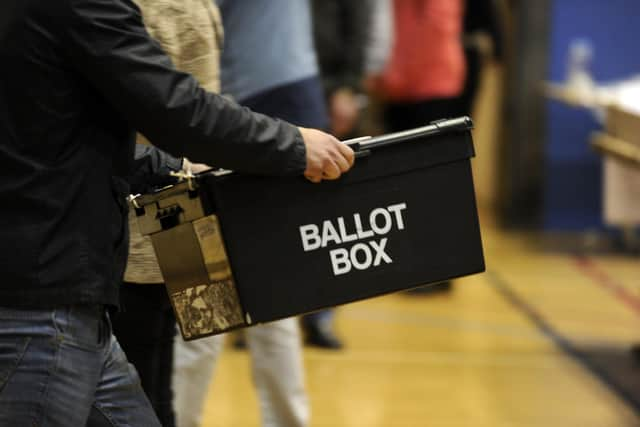Wakefield by-election: Proportional Representation would give us the MPs we deserve - Klina Jordan
Today all eyes will turn to Wakefield, as the by-election to replace Imran Ahmad Khan unfolds.
Just as they did in Hartlepool, Batley and Spen, and North Shropshire before, journalists, frontbench MPs and activists have become familiar with its train station, cafes and pubs, as the campaign unfolded.
Advertisement
Hide AdAdvertisement
Hide AdFor voters it is certainly a unique experience, having their doors knocked countless times in the six-week period, and seeing the Prime Minister trying out their local chippy.


But it is also one of the few times that people really feel that their vote matters.
At by-elections, people vote like they never normally would for two main reasons.
Firstly, it isn’t in the context of the existential two-party competition for Prime Minister, which forces voters to pick their least worst option.
Advertisement
Hide AdAdvertisement
Hide AdSecond, voters know that they can send a message – a loud, forceful, direct message which politicians will be unable to ignore.
We have seen this in so many results across the years.
In 2019, the Brexit Party almost won the Peterborough by-election, before getting less than five per cent of the vote at the subsequent general election. Last year, 8,264 residents of Batley and Spen voted for George Galloway, knowing that, even if he didn’t win, the size of his support would send a message to Labour.
In December, unprecedented numbers of traditionally Conservative voters in North Shropshire lent their support to the Liberal Democrats, flipping a safe seat and having their voices heard on the second jobs scandal and Partygate.
However, these by-elections are typically one-off events.
Most voters who take risks in by-elections “come home” to one of the two main parties at the next general election. Four months after the Liberal Democrats won the Brecon and Radnorshire by-election, the constituency returned a Conservative MP at the general election. Six months after Ukip’s shock 2014 win in Rochester and Strood, voters returned to the Tories, and it is a safe seat once more.
Advertisement
Hide AdAdvertisement
Hide AdThis is in large part due to our outdated First Past the Post voting system.
Most voters know who is likely to win in their seat, and don’t want to feel like they are wasting their ballot, particularly in an election which can decide who governs the country.
But people are sick of being forced to pick their least worst option.
Polling frequently shows that voters want to get rid of First Past the Post. Why shouldn’t they, given that it ignored 71 per cent of votes at the last election, and left tens of millions trapped in safe seats.
Advertisement
Hide AdAdvertisement
Hide AdVoters should always have the same freedom that they have at these special elections, not just to pick their least worst option, but to choose a party whose policies they genuinely agree with.
Regular polling shows that the public is in favour of Proportional Representation. YouGov’s polling tracker currently has 44 per cent in favour of it and 27 per cent in favour of First Past the Post.
All of the opposition parties in Great Britain except the Labour Party have joined Make Votes Matter’s Alliance for Proportional Representation, and numerous Labour MPs are also personally in favour of PR.
In Europe, only the UK and Belarus use this antiquated voting system, and parliaments which use more proportional systems see parties representing a myriad of people and issues better.
Advertisement
Hide AdAdvertisement
Hide AdLast year, a candidate from the single-issue “Patient Focus” party won a seat in the Norwegian Storting (parliament), to fight for the expansion of a local hospital.
For the last decade, a “50 Plus” party in the Netherlands has been represented in their House of Representatives to advocate for pensioners’ interests.
And, as anxiety about the climate emergency has grown in recent years, green parties across the continent have seen upswings in parliamentary representation.
For the last few weeks, voters in Wakefield have seen what it feels like to have their voices really count, and for politicians to really listen to what they have to say.
Advertisement
Hide AdAdvertisement
Hide AdBut, whether you live in Wakefield, Wrexham, or Wolverhampton, your vote should always matter, and politicians should have to listen to what you have to say.
Ending our undemocratic voting system, and adopting Proportional Representation, has to be the first step.